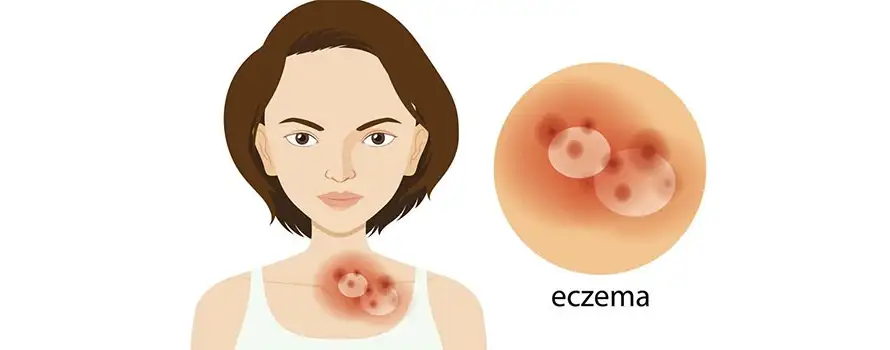Ayurveda, the ancient Indian system of medicine, offers a holistic approach to managing arthritis by addressing the root cause of the condition and balancing the body’s natural energies, known as doshas. Ayurvedic treatments for arthritis focus on reducing inflammation, alleviating pain, improving joint mobility, and restoring overall health and well-being. Here, we explore some of the best Ayurvedic medicines and treatments for arthritis:
Ayurvedic Diagnosis
Before prescribing any treatment, an Ayurvedic practitioner assesses the individual’s unique constitution (Prakriti), current dosha imbalance (Vikriti), and the specific type of arthritis (such as osteoarthritis or rheumatoid arthritis). This personalized approach allows for tailored treatment plans that address the individual’s specific needs and imbalances.
Dietary Recommendations:
According to Ayurveda, diet plays a crucial role in managing arthritis. Individuals with arthritis are advised to consume warm, nourishing foods that pacify the aggravated doshas, particularly Vata dosha. This includes cooked vegetables, whole grains, soups, herbal teas, and warming spices like ginger, turmeric, and cumin. Avoiding cold, dry, and processed foods, as well as excessive intake of caffeine and alcohol, is recommended.
Herbal Remedies:
Ayurvedic herbs are renowned for their anti-inflammatory, analgesic, and immunomodulatory properties, making them effective in managing arthritis symptoms. Some commonly used herbs for arthritis include:
- Guggul (Commiphora mukul): Known for its anti-inflammatory and analgesic properties, guggul helps reduce joint inflammation and pain.
- Ashwagandha (Withania somnifera): This adaptogenic herb helps strengthen the joints, reduce inflammation, and alleviate stress, which can exacerbate arthritis symptoms.
- Turmeric (Curcuma longa): Turmeric contains curcumin, a potent anti-inflammatory compound that helps relieve joint pain and inflammation in arthritis.
- Ginger (Zingiber officinale): Ginger is a natural pain reliever and anti-inflammatory agent that can help reduce arthritis symptoms.
- Boswellia (Boswellia serrata): Also known as Indian frankincense, boswellia helps reduce inflammation and improve joint mobility in arthritis.
- Triphala: This Ayurvedic herbal formulation consisting of three fruits (Amalaki, Bibhitaki, and Haritaki) helps detoxify the body, support digestion, and reduce inflammation associated with arthritis.
Panchakarma Therapy:
Panchakarma is a cornerstone of Ayurvedic treatment and involves a series of cleansing and rejuvenating therapies aimed at removing toxins (ama) from the body, restoring dosha balance, and promoting overall health. For arthritis, specific Panchakarma therapies may include:
- Abhyanga (Ayurvedic oil massage): Massage with medicated oils helps lubricate the joints, reduce stiffness, and alleviate pain associated with arthritis.
- Swedana (Herbal steam therapy): Steam therapy helps open the pores, improve circulation, and reduce inflammation in the joints.
- Basti (Medicated enema therapy): Basti treatments, such as kati basti (for lower back) and janu basti (for knees), involve the retention of medicated oils or decoctions over affected joints to reduce pain and inflammation.
- Nasya (Nasal administration of medicated oils): Nasya therapy helps clear the nasal passages, balance the doshas, and reduce inflammation in the head and neck region, which can benefit those with arthritis affecting the cervical spine.
Lifestyle Modifications:
In addition to herbal remedies and therapies, lifestyle modifications are essential for managing arthritis in Ayurveda. This includes:
- Yoga and Pranayama: Gentle yoga poses and breathing exercises help improve joint flexibility, strengthen muscles, reduce stress, and promote overall well-being.
- Regular Exercise: Moderate physical activity, such as walking, swimming, and cycling, helps maintain joint mobility, strengthen muscles, and improve overall cardiovascular health.
- Stress Management: Stress can exacerbate arthritis symptoms. Practising relaxation techniques such as meditation, deep breathing, and mindfulness can help reduce stress and improve coping mechanisms.
- Proper Sleep: Adequate sleep is essential for healing and overall well-being. Establishing a regular sleep routine and creating a comfortable sleep environment can improve sleep quality and support arthritis management.
Follow-Up Care:
Ayurvedic treatment for arthritis is not a one-time intervention but a comprehensive approach that requires ongoing management and follow-up care. Regular consultations with an Ayurvedic practitioner, adherence to treatment protocols, and making necessary lifestyle adjustments are essential for long-term relief and management of arthritis symptoms.
In conclusion, Ayurveda offers a holistic approach to managing arthritis by addressing the underlying imbalances in the body, promoting overall health and well-being, and alleviating symptoms through dietary modifications, herbal remedies, Panchakarma therapies, lifestyle modifications, and follow-up care. This article on Ayurvedic medicines and treatments for arthritis is a complete guide. If you have further queries, you can schedule an online appointment with Birla Ayurveda and our Ayurvedic doctors can guide you further. Consulting with a qualified Ayurvedic practitioner can help develop a personalized treatment plan tailored to individual needs and preferences, ultimately supporting optimal health and quality of life for those living with arthritis.



